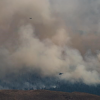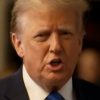KamloopsBCNow reached out to all Member of Parliament candidates running in the 2015 Federal Election in the Kamloops-Thompson-Cariboo riding and asked them questions pertaining to their electoral district.
Responses received from those running in the Kamloops-Thompson-Cariboo riding will be posted live on KamloopsBCNow between August 31st and September 4th in a randomly selected order.

1. Why are you best suited to represent our region federally?
I'm interested, curious, and engaged. I don't just accept everything I'm told, I want to understand it fully and see the facts behind the arguments. 'Citations needed' is one of my favorite phrases. I am a home-owner and university graduate (BA in political science and economics), currently 100 per cent debt-free, and used to living frugally with a minimum of waste. I would hope to transfer all of those values to the federal level. Furthermore, my current day-job (and if I'm not mistaken I'm the only candidate currently running while still holding down such a thing) mostly consists of connecting people to the information, resources or people they need; this is precisely the function of an MP's constituency office.
2. What will you do to ensure the voices of the Kamloops-Thompson-Cariboo region are heard at a federal level?
The Green Party is in fact the only party where MPs are able to represent their constituents faithfully in Parliament, as it is the only party with a policy of never whipping votes (forcing MPs to vote the party line whether they like it or not). In the Green Party, we believe the job of an MP is to represent the riding to Ottawa, not the other way around, as has been the case for at least the past 15 years. As an MP I would follow Elizabeth May's lead in holding regular town-hall meetings in each of the riding's several communities, to hear directly from local residents on what issues are currently facing them and what I can do to help.
3. What is your stance on legalizing marijuana in Canada?
In my job, I work with addicts and homeless people every day, and I have seen first-hand the horrific results of this government's misguided War on Drugs. I'm sure Ms. McLeod will dutifully parrot her leader's talking-points about how marijuana is "harmful to your health" (if she answers at all; several Conservative Party candidates across the country are actually officially declining ALL contact or inquiries from media or the public until AFTER the election!), but what she will neglect to add is that by treating this so-called 'health problem' as a criminal issue instead of a medical one, she is in fact happy to leave the entire marijuana industry (long one of BC's three largest) in the eager hands of organized crime, allowing them to rake in BILLIONS of dollars from pot-sales with no regard at all for the health or safety of its consumers.
Since alcohol and tobacco are also known to be unhealthy, are the Harper Conservatives planning on outlawing those too? If the health of Canadians was really a concern rather than just an excuse to use marijuana as yet another a convenient wedge-issue, Ms. McLeod would agree that we should legalize and regulate it just like alcohol and tobacco, provide real help for those who fall into addiction, and deal a huge financial blow to organized crime in the process.
4. How are you planning on building and maintaining a political relationship with local First Nations?
As First Nations are also part of this riding, I would certainly include the local bands in my regular town-hall circuit, and make myself available for further consultation as needed. Again, in my daily work I see a disproportionate number of First Nations individuals living in terrible circumstances, and I would do whatever I could to finally help solve the systemic problems that lead them there. I believe the recommendations of the Truth and Reconciliation Commission would be a good start.
5. How will your party support the provincial/national economy? Do you think the Canadian economy is slumping into a recession?
The economy is obviously in a recession and the federal budget is in deficit for the 8th straight year, no matter how many times Mr. Harper or his finance minister-of-the-moment try to insist it isn't. This is the obvious and entirely foreseeable result of putting so many of Canada's economic eggs in the oil-sands basket, showcased by Mr. Oliver's panicked three-month delay of the budget when oil prices suddenly fell through the floor in January.
A Green government would instead seek to diversify the economy into a wide variety of renewable energy technologies, launch a massive national effort to retrofit existing homes and offices for increased energy efficiency, and push for more value-added jobs including adding on-site refining capacity to the oil-sands rather than the nonsense policy of shipping out raw bitumen as fast as possible at rock-bottom prices for China and the USA to refine and sell back to us. Bitumen is a very hazardous substance to transport either by rail or pipeline that will nevertheless only increase in value over at least the medium term, so it is mind-boggling that Ms. McLeod and the Harper Conservatives seem so intent on getting rid of it all with as much risk and as little benefit to Canadians as possible.
Further, the Green Party's proposal for a Guaranteed Livable Income (GLI) would massively boost consumer demand at almost all levels of society but especially in lower-income populations, who tend to spend most of their money close to home anyway. The number of new customers this would create for their local small businesses would be huge.
6. How will you ensure the region's natural resource jobs will promote growth as well as comply with ethical/environmental standards?
Through a combination of appropriate, responsive regulation, broad stakeholder consultation and the correct alignment of economic incentives, almost all things become possible. There are literally too many policies in the Green Platform related to this question to list here, but I invite the curious to visit the Green Party of Canada's platform page here and see in particular sections 1.15 on Agriculture and food, 1.17 on Fisheries, 1.18 on Green forestry, 1.19 on Expanding Cultural and Eco-tourism, and 1.20 on Mining. The rest of the platform is worth a look too, though it's nearly 200 pages in all. If there was still any lingering suspicion out there that the Greens are a "one-issue party", I hope a look at Vision Green finally lays it to rest!

7. British Columbia is suffering from a doctor shortage, what steps do you have in place to address this issue? What will you do to help retain new graduates in the region?
The Green Party devotes a full 12 pages of its platform to practical, affordable proposals to nurse our ailing medicare system back to health, in sections 4.7 and 4.8. Just a few highlights include: extending the federal Health Accord; immediately providing funds for more med-school openings to train more doctors and nurses; working with the CMA to establish fast-track certification of foreign-trained medical professionals; and providing student-loan forgiveness to med-school graduates who will work in under-served communities.
On the other side of the coin, it is shocking to me that the imminent demise of the federal Health Accord at the end of this year has received basically no public attention or media discussion in this election so far, despite the fact that it will lead to more than $36 billion in funding cuts over the next ten years. The decision not to renegotiate the Accord was entirely Stephen Harper's, and just goes to show his true feelings toward what was once the crown jewel of Canada's social safety net.
8. What will you do to help retain new graduates in the region?
*Editors Note: The answer to this question can be found in question 7.*
9. What will you do to ensure continued financial support to the region for government programs?
I would obviously work with the ministers responsible to make the case for the continuation of those programs that work well and cost-effectively, and the alteration or elimination of those that don't or that have outlived their usefulness. Since financial sustainability is a Green value too, we don't believe government programs should live forever just for their own sake, but where there is a need as well as a way the federal government can help to address that need, I would make the best case I could for it.
10. Wildfires have been plaguing B.C. for the better part of 2015, pushing our expenditures into the hundreds of millions, how will you push for more federal involvement in terms of funding, resources, etc.
It's not just forest fires, the federal government's mandate includes other disasters like flooding and ice storms too. In emergency management once a situation comes to the point that a province can't handle it, the federal government programs kick in to assist, whether in arranging for additional funding or manpower including authorizing the military to assist. It could also assist with funds for prevention programs, flood control work, "fire-smart"ing communities, etc. as well as funding for emergency management programs and making grants/funding for emergency infrastructure available at all levels.
Sadly, much of this support has been cut during the Harper years, for example the excellent CBRNE (Chemical, Biological, Radioactive, Nuclear, Explosive) Training program where city emergency-response workers like local firefighters were able to take part in high-level training paid for by the federal government that they couldn't otherwise afford. It would be interesting to hear just how often Ms. McLeod voted in favor of such cuts, or exactly how hard she fought to prevent them.
11. By mid-August, most of Interior B.C. was under a Level 4 drought classification, how would you push/promote for better water conservation in British Columbia?
The Green Party has several pages in its platform on Water policy in section 3.2. Some highlights relating to drought in particular include: banning bulk-water exports and removing water from the several current trade treaties under negotiation; establishing regulations and product-standards to promote water-efficient technologies; making federal funding for urban water infrastructure contingent on water efficiency plans with measurable goals and objectives; providing adequate funds for local and regional flood protection and drought-management planning; providing strategic climate-change program funding for water conservation since saving water also saves energy and GHG emissions; developing transitional strategies to shift agriculture away from water-intensive crops and towards lower-water local sustainable agriculture.
12. Is there anything else you would like voters to know?
Stephen Harper is not a conservative. He says a lot of conservative-sounding words, and he is a master at fostering division and political tribalism, throwing out wedge-issue after wedge-issue to convince small-c conservative voters that he is their only choice, but none of it's true. Preston Manning himself has said on the record that "words don't mean much to Stephen", and it shows. On issue after issue of concern to sincere conservatives, this so-called Conservative Party, enabled by MPs just like Ms. McLeod dutifully voting the party line every time while parroting his talking-points back home, has sold those values down the (drought-stricken) river:
*Small-c conservatives believe in the importance of balanced budgets: the Harper government has run exactly one balanced budget handed to him on a platter by the departing Paul Martin and actually had Canada in a structural deficit before the financial crisis of 2008 even hit, while this year's "Fudge-It budget" was "balanced" entirely through accounting tricks and sneaky clawbacks (like the suddenly-taxable Childcare Benefit), and it's still turning out to be $1 billion in deficit anyway.
*Small-c conservatives believe in respect for the taxpayer: the Harper government has spent millions on ads for programs that no longer exist, millions more on lobbying Canadians on behalf of the oil-and-gas sector, BILLIONS on defective fighter-jets, not to mention $16 glasses of orange juice and round-the-world trips for Harper's limousine, while nearly every senator found to be making outrageous expense claims was a Conservative appointed by Stephen Harper. Most egregious of all, after changing the election rules to favor himself wherever possible in the so-called Fair Elections Act, Mr. Harper has seen fit to stick Canadians with a $500 million+ bill for an election twice as long as usual, purely so that he could spend his entire $50 million party war chest (and claim 60 per cent of it all back at the end directly from taxpayers' pockets). In essence, he is charging Canadians an unnecessary $200 million just so we can have the privilege of writing his party an additional $15 million cheque as well. Compared to that, the Sponsorship Scandal is like pocket change. And there are still so many more examples...
*Small-c conservatives believe in respect for our veterans: the Harper government has closed veteran services offices across the country and replaced lifetime disability benefits with one-time lump-sum payments as if to say 'we wash our hands of you, go look after yourselves'.
*Small-c conservatives believe in respecting our troops: Stephen Harper was caught putting our forces in Syria in mortal danger by jaunting over to take a needless pre-election photo-op of himself with them, revealing their identities to any enemy with internet access.
*Small-c conservatives believe in maintaining our national sovereignty: by signing and ratifying the Canada-China FIPA, Stephen Harper gave Communist China (!!!) a 31-year long unbreakable veto of ANY Canadian law at any level of government that impacts negatively on the profitability of any Chinese-owned corporation doing business in Canada.
*Small-c conservatives believe in privacy from big government peering over your shoulder wherever you go: Bill C-51, described by an active member of Britain's MI-5, Joe Fogarty, as "dangerous" and "a tragedy waiting to happen", has turned CSIS into a literal secret police. That was after they had already been caught indiscriminately snooping on the general public's Wi-Fi devices at a major national airport.
This list could go on for a long while yet. For these and so many other reasons, any small-c conservative with genuinely held conservative principles CANNOT in good conscience cast a vote for Stephen Harper or any member of his party, since not a one of the people running this time under the Conservative banner have been able to stand up to him. Mr. Harper would like conservative voters to think they have no other choice but him, but that's just another lie.
As an MP, Elizabeth May has fought hard against every single one of the above examples (and many more), often so effectively that Mr. Harper has had to change the rules repeatedly just to make it harder for her to interfere in his corrosive agenda. If you are a conservative who wants to truly vote your principles, as well as send a powerful message to the so-called Conservative Party that they can't just take you for granted as they have for the past decade or more, I want to let you know that you have a home in the Green Party. Please don't hesitate to contact me to find out more, at [email protected]

For more information on Matt Greenwood, please visit his website here.
The 2015 Federal Election is Monday, October 19th.
















